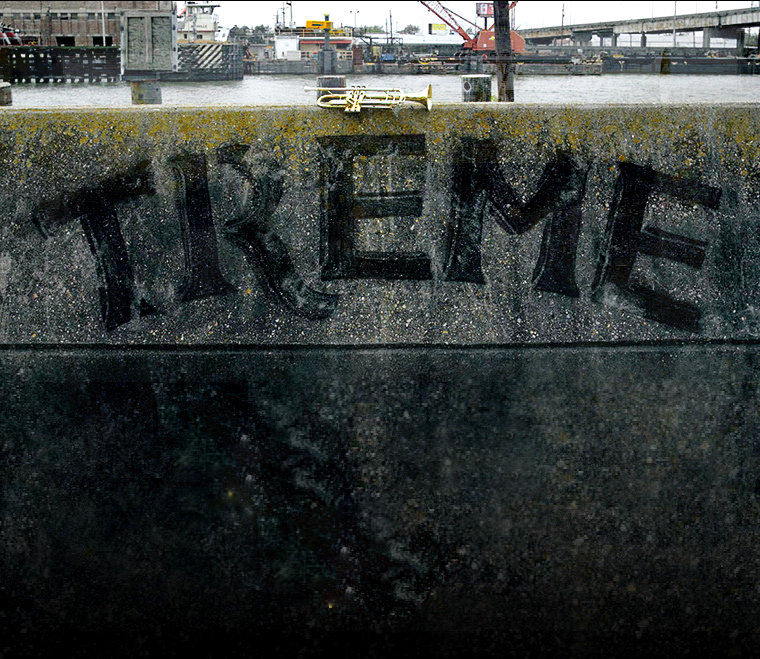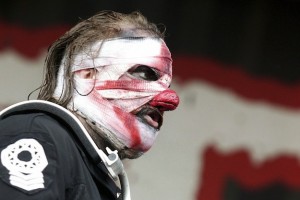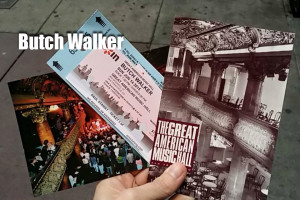From The Wire To The 9th Ward – A First Look At Treme
6 min read
 We as New Orleanians are somewhat wary of or even cynical when it comes to our city being represented to the rest of the country on television or in the movies. We’ve seen our fair share of what Hollywood thinks we are. We’ve heard the bad Savannah, GA accents. We’ve laughed at the K-Ville Gumbo Party. We’ve been there, done that and speaking for myself, don’t necessarily care to see another failed attempt at authenticity.
We as New Orleanians are somewhat wary of or even cynical when it comes to our city being represented to the rest of the country on television or in the movies. We’ve seen our fair share of what Hollywood thinks we are. We’ve heard the bad Savannah, GA accents. We’ve laughed at the K-Ville Gumbo Party. We’ve been there, done that and speaking for myself, don’t necessarily care to see another failed attempt at authenticity.
Enter Treme.
Treme is the David Simon (The Wire, Generation Kill) creation that debuted on HBO this past Sunday. It sets itself in post-Katrina New Orleans, and takes its name from the New Orleans neighborhood next door to the French Quarter – for lack of a better frame of reference. The neighborhood is gritty and poor, and its people are the caretakers of a host of things considered by locals to be quintessential New Orleans. Musicians and artists both famous and not have called it home. Sacred traditions are maintained in its shotgun houses and on its broken streets. One could only hope David Simon’s new series would capture half of what this place is. If I’m being objective, I’ve got to believe Simon can pull it off. But New Orleans is no place for objectivity.
As if an outsider’s view of our city wasn’t bad enough, Simon and his crew are attempting to write a show about what Katrina did to the city and how its people reacted to it. Nothing in recent memory has angered me more than the outside media pretending to know what New Orleanians felt in the wake of Katrina. We were asked why we even wanted to live in the path of these storms to begin with, and now why would we ever want to move back. Needless to say this adds to the skepticism, but I’ll not pre-judge. Treme at least deserves to get the pilot on the air.
We start with Rebirth – the quintessential New Orleans brass band – at the “first second-line since the Storm.” The first thing I notice is how comfortable the actors are. Simon and his crew – some of whom live here and have written about the city before – cast Baltimore locals whenever possible in The Wire, and it would seem things haven’t changed for Treme. No Savannah accents. No contrived references to Mardi Gras or gumbo. I’ve actually seen this opening scene happen. So far Mr. Simon is doing better than any previous attempt in my book, but then again, it’s only been 5 minutes.
We’re then given snapshots of a few characters.
Davis McAlary played by Steve Zahn is a musician/DJ who may or may not be in a relationship with Janette Desautel played by Kim Dickens. Zahn’s a bit of a stretch for a local, but maybe he had Midwestern parents or something. He was the one I was worried about in the cast, but it appears he may be able to pull it off. Playing a DJ at New Orleans’ only radio station worth trusting (WWOZ) is a perfect fit for him. The role allows him to be quirky and…um…Zahn-y without it coming across as shoehorned – his interaction or lack thereof with Elvis Costello was perfect.
We meet LaDonna Batiste-Williams who seems to have left her plush gig cutting Y-incisions into the chests of ex-Miami beach sun-bathers to run a New Orleans dive bar. She’s the ex-wife of Antoine Batiste (Wendell Pierce) whom we met in the opening scene playing trombone with Rebirth.
We drive home with Albert Lambreaux (Clarke Peters) and his upright bass for the first time since Katrina. We see him step through the front door of his house into silt-covered floors and mold-infested walls. You see in his eyes the pain of someone who’s lost everything and the determination of someone who cannot accept that as final.
We’re also introduced to John Goodman who I honestly thought was just playing himself rather than Creighton Bernette – a college professor passionate about his city and the media’s misrepresentation of it. His wife, a lawyer working to find Batiste-Williams’ brother, is played by Melissa Leo.
These characters run through the spectrum of post-storm New Orleanians. From the poor 9th Ward residents who were lucky if there was a house still left on the slab, to the Uptown residents who hardly got any water on the high ground of the Sliver by the River. They run the gamut of emotions found here as well. The family member wondering if their brother is still alive. The musician doing what he knows best to make enough money to get by. The New Orleans student going to school in Baton Rouge. The bar patron finding a bit of normalcy in the middle of chaos through a Kermit Ruffins show. They’re all represented, and more or less played to a tee.
I could talk about the acting which runs from great to passable. I could talk about the writing which is on par with what we’ve come to expect from Simon and the Wire crew – and by the way shouldn’t be hurt by the death of David Mills. But the overall feel of the show is what impressed me most. It just felt right. It felt like New Orleans.
I’ve watched movies before that were set in the city, but didn’t feel like New Orleans. Runaway Jury is a prime example. All the landmarks were there. All the stuff that people think of when they think of New Orleans was there like Voodoo dolls and Bourbon Street. But it just didn’t feel like New Orleans.
Treme feels like New Orleans. I would almost go as far as to say that Treme is New Orleans. I may feel differently by Episode 10, but at the moment, I’m thoroughly impressed.
The day of the premier, David Simon had a piece published on nola.com that tried to explain some of the inconsistencies a local might spot in Treme. Among other things was the use of a Hubig’s pie in a restaurant at a time when Hubig’s wasn’t up and running. This was Simon’s mea maxima culpa to a people who would no doubt balk at the many half-truths in this series if not dealt with ahead of time. He told us that through Treme he has tried to capture the spirit and honesty of the city rather than meticulously attend to every painstaking detail. He fessed up to blatant inconsistencies and miscalculations, and asked for our forgiveness.
After seeing the pilot, I can not only forgive Mr. Simon, but say thank you. This is by far the most accurate media portrayal of our city the rest of the country has ever seen. Thank you for getting to know us. Thank you for casting locals and using local writers. Thank you for being honest. I know some in Baltimore weren’t happy with your honesty when it came to corruption and crime, but we’re used to it. Honesty won’t hurt us. In fact, honesty can only show who we are in spite of the darker parts of our history.
If you’ve ever spent time in New Orleans, you’ll get it when you see Treme. If you’ve only known New Orleans through bad movie depictions and CNN interviews with Brad Pitt, you need to watch this show. See the heart of the people. See the reasons we live here. See the reasons we came back. See the reasons we’re proud to call it home.
by Jacob Taylor
you can reach Jacob at jacob [at] circlesixmagazine [dot] com






